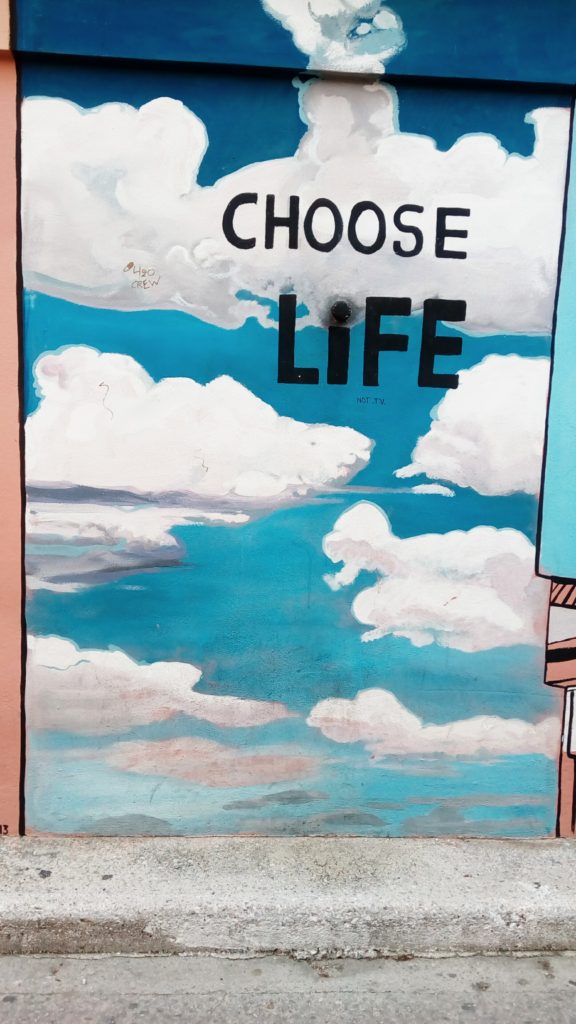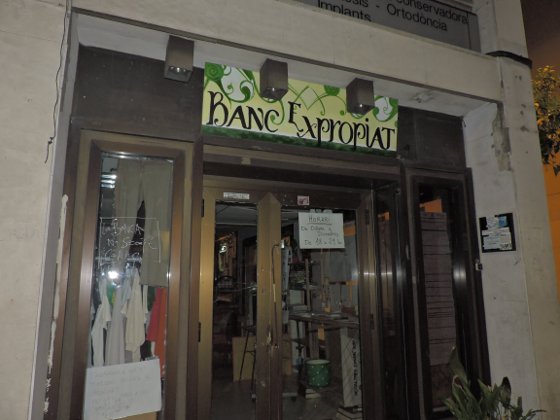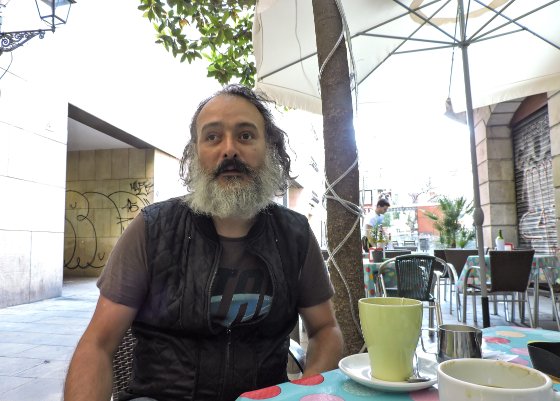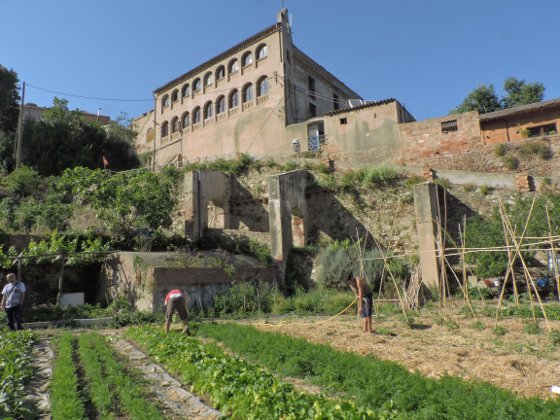
by Marula Tsagkari
We must look for man wherever we can find him. When on his way to Thebes Oedipus encountered the Sphinx, his answer to its riddle was: ‘Man’. That simple word destroyed the monster. We have many monsters to destroy. Let us think of the answer of Oedipus.
These words are from the Greek Poet Giorgos Seferis’ speech at the Nobel Banquet. Today they are more relevant than ever, as humanity fights against a ‘contemporary Sphinx’: the utopian ideal of an infinite growth defined by economic indicators and theories. This promethean way of living has sustained the idea that increased wealth was the ‘one pill to cure them all.’
However, in the past years, it has become more and more obvious that resources are finite and that the planet cannot sustain continued growth. And just like that, the utopian ideal started falling apart. The latest economic crisis showed the cruelest face of the unsustainable capitalistic system. It has become clear now, more than ever, that we live in an absurd world, that despite increased wealth, unemployment and poverty are increasing, conflicts are continuing, and inequality keeps rising. In this context, the idea of degrowth points to an alternative route, and establishes a vocabulary to describe a new world based on solidarity and cooperation.
While the idea of degrowth is rather old (seeds can be found in the 1970s), the movement has only started to gain ground in recent years, especially in the echoes of the recent economic crisis. The Conferences in Leipzig in 2014 and in Budapest in 2016 brought together thousands of scientists and citizens with different backgrounds and ideologies including sufficiency-orientated critics of civilization, reformists, pacifist idealists, and libertarian leftists. However, they all seem to share the common belief that the current economic model is unsustainable, as well as a vision of a different way of living.
Perhaps because the movement found its voice through people’s dissatisfaction following economic crisis, many confuse degrowth with the idea of ‘unsustainable degrowth’, which is often synonymous with economic recession and social instability. On the contrary, the core of ‘sustainable degrowth’ is the concept of ‘progress’, but a progress not related to an increase of the GDP, large-scale production, or over-consumption. As Tim Jackson puts it, ‘Every society clings to a myth by which it lives. Ours is the myth of economic growth’. And exactly this is the myth that the degrowth movement seeks to demystify.
At the same time that the degrowth movement was gaining ground in the public discourse, my country, Greece, was living the most severe economic recession since the Second World War.
At the same time that the degrowth movement was gaining ground in the public discourse, my country, Greece, was living the most severe economic recession since the Second World War. Greece entered the Eurozone in 2001 and since then joined the privileges of being a member of the EU monetary union, which led to a rapid increase in GDP between 2002 and 2008. However, Greece was unable to recover from the global economic crisis and, in 2009, Greek debt peaked at €310.4 billion.
Since then, the country has been trapped in a vicious cycle of bailout programs and austerity measures imposed by the International Monetary Fund (IMF), under the watchful eye of the German government. These measures came with many costs. The austerity plans included strict public cuts (in health and education), measures in the private sector (massive dismissals), increased taxes, and reduced pensions. These decisions increased political instability and had a severe social cost. Unemployment was last reported to be at 23%, and 45.7% among young people (January 2017); while there are more than 20,000 homeless people (February 2016). Thus, the initial economic crisis has been transformed into a multifaceted social, political, and environmental crisis—what Geels calls a ‘triple crisis’, each of which is connected to the other.
In Greece, these interactions are now becoming clear. There was an increase in the number of smog events due to the increased price of oil, while it a rapid increase in illegal hunting and logging related to sharp budget cuts in conservation was also observed.
In the Chinese language the word crisis is represented by two symbols. The first means danger and, the second, opportunity.
In the Chinese language the word crisis is represented by two symbols. The first means danger and, the second, opportunity. It is true that economic crises are complex phenomena, and a form of exogenous shock in the society. On the other hand, they are also an opportunity to challenge the current way of thinking and they can open a door to a profound change.
As some supporters of degrowth have claimed, this new era will be born from the ashes of the present unsustainable system, or more specifically, active social movements can gradually pave the way for a bigger change. The work of Giorgos Kallis, Francois Schneider, and Joan Martinez-Alier offers a useful starting point. They claim that a crisis can be seen as an opportunity for alternative discourses and the seeds can be found in community-based initiatives that can form the pieces that, in the future, will fit into a bigger puzzle.
This idea triggered my interest, and I decided to focus my research on the question of a sustainable degrowth transition in Greece, and to what extent it could result from this increased civic engagement. And taking this as a starting point, the idea I want to put forward is that in Greece, despite the crisis (οr because of the crisis) one can find the seeds that can support the idea of degrowth.
The early seeds of a degrowth economy in Greece
Civic engagement was rather underdeveloped in Greece before the economic crisis. For instance, in 2005, the Civicus Survey pointed out that Greek civil society is anemic, as it was dominated by political parties and the family. However, in the wake of the economic crisis, civic activism appeared as a spontaneous response to increased social inequality and poverty. Aside from the increased number of NGOs, new, informal groups based on solidarity erupted and formed grassroots movements and networks. In times of crisis an ‘alternative, parallel’ economy was born.
But it would be a mistake to assume that this new economy came out of nowhere. Greece is a country with a strong sense of community and a culture of self-organization. The pharmacist, the butcher, and the fisherman of the neighborhood are integral figures of Greek culture. Everybody knows them and their stores are often a gathering point. Unfortunately, these small businesses are also the most harmed by the economic crisis and the austerity measures. Between 2008 and 2015, more than 20.000 small local businesses closed in Greece, according to the European Commission. As a response to the absence of local gathering points, and the loss of jobs, a number of social movements and cooperations emerged during the times of crisis.
The pharmacist, the butcher, and the fisherman of the neighborhood are integral figures of Greek culture. Everybody knows them and their stores are often a gathering point.
What’s more, the idea of cooperation has always been an important element of Greek tradition. In fact, Greek cooperative traditions may be the oldest in Europe. The idea of self-organization can be found in ancient Greek times in the form of trade unions. Cooperatives were also present, in a more advanced form, in the Byzantine Empire. These consisted of unions of land or livestock owners into common production and management systems. In this period they were recognized by the legislation of Leo VI the Wise and achieved increased autonomy—becoming a vital part of the economy.
Cooperatives were also present during the Ottoman rule (1453- 1821) and had an important role during the national liberation war of 1821. During this period new cooperatives popped up in small villages, where small groups of producers known as ‘syntrofies’ (companies or friendships) decided to cooperate to avoid competition. In some cases they were even able to export their products to other European countries.17 After Greece became an independent country the cooperations remained active, working for the establishment of a democratic regime.

The revitalization of Greece’s cooperative movement
Coming back to the present, the Greek cooperative movement is still a vibrant part of the economy. The numbers speak for themselves, as there are currently more than 3000 agriculture cooperatives, 14 co-operative banks and 48 womens’ co-operatives. In addition, one can find 23 electrician, 33 plumber and 41 pharmacist co-operatives all around the country.
Lately, the idea of cooperatives has once again increased in popularity. People prefer products they can trust and remind them of their ‘grandmother in the village’. They also want to support local communities. Ιn this context, cooperatives offer products whose raw materials come directly from the land of the members of the cooperative or the village, they are often based on traditional recipes from the women in the villages, and in most cases they pack and promote their products by themselves.
On the island of Lesvos, more and more women who lost their job during the crisis joined the women’s cooperative. This increase in the number of memberships gave them the opportunity to augment their production and expand their network. They take advantage of the oranges produced in the area, which remained unused the previous years, to make desserts and jams. They also use ‘neratzath’, a type of rose water made from the leaves of the orange tree, to make cosmetics and perfumes. Nowadays, their products (sweets, jams, pasta, and cheese) can be found all around the country.
Even in big cities a number of cooperatives have sprung up. In Athens one can find the cooperative coffee shops Mantalaki, Pagkaki, Syggrouomeno; the Syn Allois shop, an importer of fair-trade products; the publisher Ekdoseis ton Sinaderfon; the computer repair shop Stin Priza; and the grocery store Lacandona, among others. Many of these stores operate under the umbrella of a bigger network, Kolektivas.
The ‘do you want milk’ cooperative started in 2011, and, despite the crisis, now counts more than 60 sell points, 50 farms, and, on a daily basis, they produce 10% of the domestic production.
One initiative is the ‘do you want milk’ (thes gala) cooperative. The cooperative is made up of milk producers from central Greece and supplies with fresh milk a number of ‘milk ATMs’ in Larissa, Athens, and Greece. Consumers can fill their bottles with fresh milk, produced less than 24 hours ago, with a cheaper price than can be found in the supermarket. The cooperative started in 2011, and, despite the crisis, now counts more than 60 sell points, 50 farms, and, on a daily basis, they produce 10% of the domestic production.
New consumption habits
Overall, consumption in Greece had been significantly reduced as a result of diminished wages and pensions. As documented by the Hellenic Statistical Authority in 2014, average household consumption expenditure went down by almost 32% since 2009.
As a response to this decrease in consumption and available funds, more and more second hand stores have popped up in the big cities
As a response to this decrease in consumption and available funds, more and more second hand stores have popped up in the big cities. One of the most famous is located in the neighborhood of Eksarcheia; a neighborhood known for its anti-establishment and anarchist character. In this store, one can trade old clothes for new ones. ‘Our store is a response to the overconsumption, which is one of the reasons that brought us into the present crisis,’ said one of the women who worked there:
Nowadays, more and more people prefer to buy second hand clothes, especially if they can exchange them with some of the clothes they don’t need anymore. Of course some of our clients are people who can’t afford buying new clothes but the past year we see more and more people who choose not to buy new clothes as a way of living.
In the same spirit one can find similar initiatives of book exchange, furniture exchange, and even exchange of mobile phones.
Another important element of the Greek tradition is the ‘100 km rule’ (before it became famous internationally as the ‘100 mile diet’). According to this principle, people should aim to consume products that are produced within 100km from the residence. Τhis concept was a pillar of the Greek diet between the 50s and 80s, however, due to increased urbanization and working hours, and the large variety of products available on supermarkets, it was replaced by the concepts of ‘easy’ and ‘quick food’. Recently, the idea of the ‘local farmers market’ aims to bring back this idea. Producers from all around the country gather in a different neighborhood every Sunday and sell their products without Intermediaries.
In one of my visits in a local farmers’ market in my neighborhood, I had the chance to speak with M.X., a cheese producer from northern Greece. ‘Because of the crisis people want to make sure they buy local products,’ she told me. ‘More and more people tell me that they avoid buying from big supermarkets, not only because the products are more expensive, but because they know that, in this way, international brands take advantage of the Greek producers and buyers,’ she added. ‘I talk with people and give them all the information they need about my products. I am even willing to negotiate the price when someone can’t afford it!’
Social solidarity groups are also rapidly growing these past years. The work of organizations like ‘Doctors without Borders’, ‘Doctors of the World’, which were active before the crisis, are now supported by new health care organizations like the ‘social infirmaries’ (koinonika iatreia). Acting at a municipal level, these groups consist of doctors and nurses who treat patients for free. Similar initiatives are organized by pharmacists, teachers, and even coffee shops, which offer a free cup of coffee to people who cannot afford it.
Last but not least, a number of more politically-oriented social movements emerged during the times of crisis as a response to the austerity measures and the dysfunctional democracy. The big protests of 2008, the movement in Sundagma square and the ‘I won’t pay movement’ (Kínima den Pliróno) are some examples. Squares and occupied public and private buildings were transformed into sites of political contestation and mobilization.

From ‘a way of living’ to a way to ‘make a living’
The above examples illustrate an increased tendency around niches of social movements that can form an alternative model of growth, based on solidarity, cooperation, and mutual respect. Many of these initiatives form part of the tradition that is rooted in the Greek culture that did not fade completely in modern life. This can offer a comparative advantage towards a potential transition to a degrowth model, as many of the ideas this model embodies are neither new nor strange to the Greek society. Of course these former traditional societies had a number of limitations (e.g. racism, xenophobia) that are not in line with the ideas the degrowth movement puts forward. Thus it is essential to learn from the past and keep the positive elements that can pave the way for a new way of living.
These ideas are becoming popular mainly as an alternative to the economic crisis; however they need to form ‘a way of living’ instead of a way to ‘make a living’.
These ideas are becoming popular mainly as an alternative to the economic crisis; however they need to form ‘a way of living’ instead of a way to ‘make a living’. Nowadays, many of the people who choose to buy from second hand stores or to visit the farmers market are driven by need. On the contrary, this attitude should grow into a fundamental mentality. Most of the people I had the chance to interview pointed out that, in the past years, they observed a change in people’s attitude, mainly because of the ongoing crisis that made many question the success of the present system. But is this enough?
The answer is no. This is only a first step in a long path. These initiatives will not have a significant impact if they are not supported by adequate education and publicity. Such instruments can strengthen these alternatives by raising awareness—triggering the interest of more people and encouraging the formation of new projects.
State intervention is another factor that can shape social movements. In the case of Greece, the government seems to ignore the importance of these movements, and often threatens their existence through increased taxation and stricter legislation. In the present political situation, it is nearly impossible to picture a major movement that does not involve the state. At first glance, this seems to be a contradiction as it’s a common belief that the state is a unitary actor, and that social movements are a separate unity and often in opposition to the state. In this context one should realize that these initiatives, through their increased influence, can have the power to form a different political regime that, in turn, will also transform them. To use the words of Saturnino Borras, ‘societal actors attempt to influence and transform state actors, but in the process are themselves transformed—and vice versa.’ Thus, realizing the potential of these initiatives, especially at a municipal level, could be a crucial first step.
One should realize that these initiatives, through their increased influence, can have the power to form a different political regime that, in turn, will also transform them.
Today, we are participants in a complex and severe crisis, and a radical crisis requires radical solutions. Through a number of examples it became obvious that in Greece there is groundwork for a transition to sustainable degrowth. There are seeds in the numerous social movements, voluntary actions, and solidarity networks. What remains to be seen is if the seeds will flower. We should not forget that, as Rebecca Solnit says, ‘Change is rarely straightforward… Sometimes it’s as complex as chaos theory and as slow as evolution. Even things that seem to happen suddenly arise from deep roots in the past or from long-dormant seeds.’
Many thanks to all the interviewees and to Brayton Noll for his useful comments.
Marula Tsagkari is a researcher, and environmental professional from Athens, Greece. She holds a BSc in Biology and she is currently enrolled in the Erasmus Mundus Master of Environmental, Science, Policy and Management. She lives in Athens, Greece and her research focuses on the areas of Environmental Politics, Policy and Justice especially in the European South.


